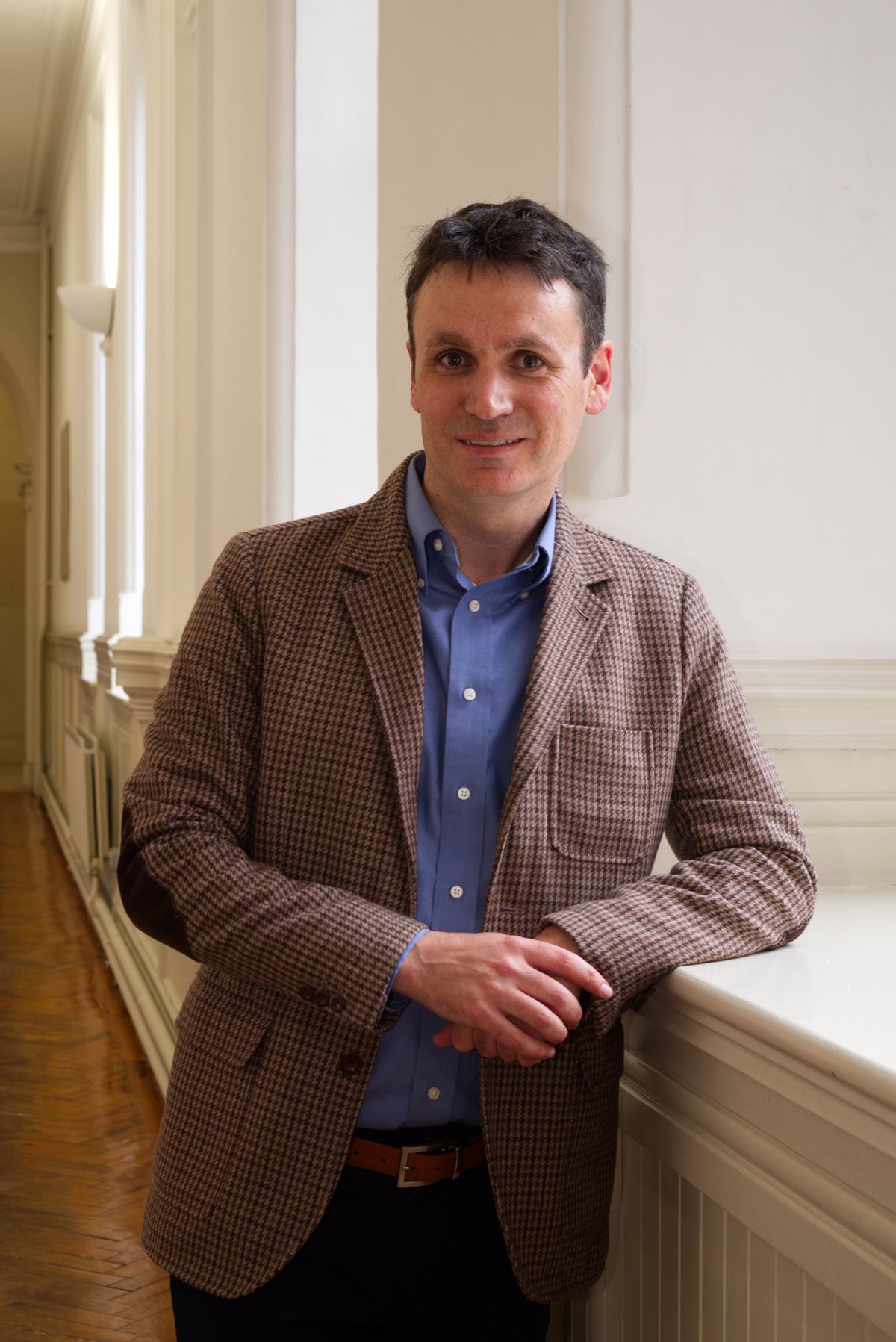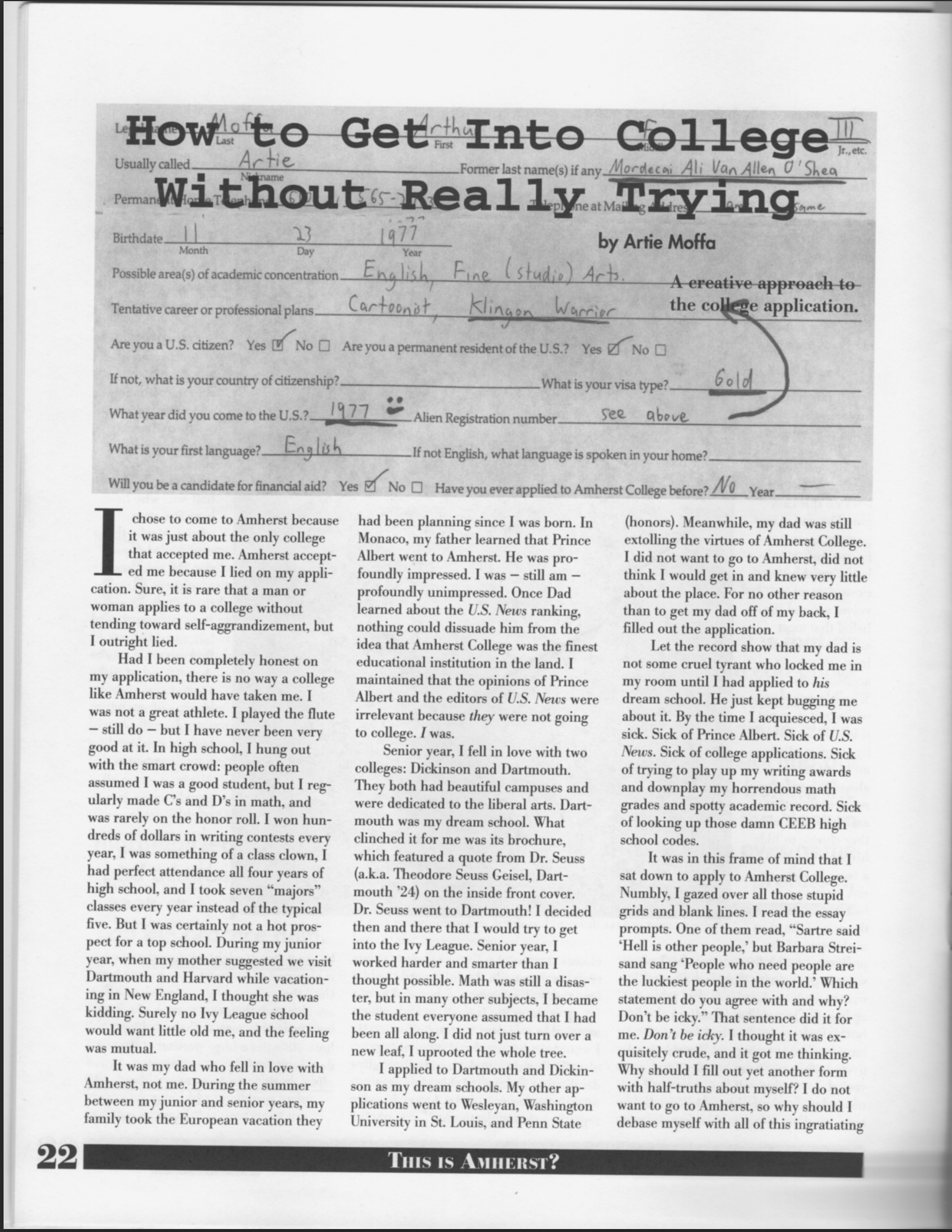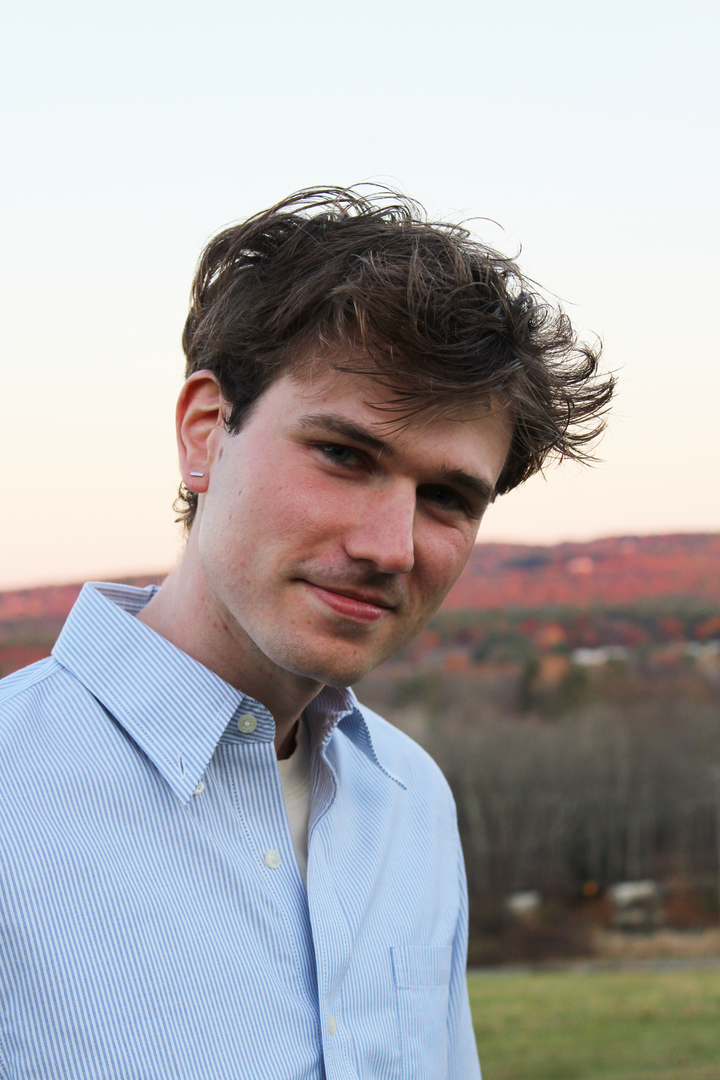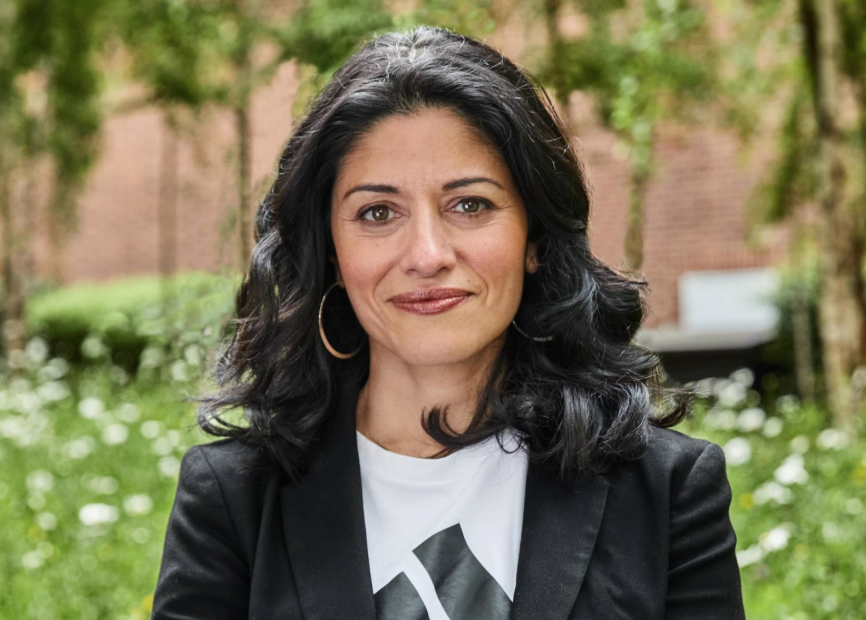From Klingon to E-Commerce — Alumni Profile, Artie Moffa ’00
Artie Moffa ’00 has always been into wordplay. He crafted extravagant fictions for his Amherst application and remains engaged in the poetic arts.

Artie Moffa ’00 lied on his Amherst application. But Moffa did not embellish extracurricular activities or add AP classes to his academic transcript. He did not want to attend Amherst in the first place, so he said he wanted to be a Klingon Warrior — of Star Trek — and that his former name was Mordecai Ali Van Allen O’Shea.
Still, Amherst was the only school that Moffa got into. The thick envelope arrived on April 1, and Moffa initially felt honored that the college was in on his prank. The acceptance was authentic though, and because Amherst was the only school he got into, he started as a first-year the following fall.
“It was a really profound lesson: I can be silly, and silly works sometimes,” Moffa said. “It’s entirely possible that in the multiverse of Artie Moffa, there [are] 50 versions of me that didn’t get into Amherst College. But it worked this one time.”
High Risk, High Reward
Moffa spent his childhood “just outside of Philly.” He was a talkative kid who always craved the spotlight — he did so through writing, wordplay, and acting out as a class clown.
At a young age, being wacky gave Moffa a license to be himself when others were being taught they should grow up, he said.
“I don’t know if a wacky approach is necessarily the best in life, but it’s a high-risk, high-reward strategy,” Moffa said.
Moffa’s wordiness and “wacky approach” to life translated to his career goals.
As a first-year, Moffa thought his major would be studio art, and had plans to write and illustrate children’s books after college. Moffa was also very excited about poetry — he had confidence that his high school writing success would grant him a spot in “Writing Poetry” with Glyn Maxwell, a renowned British poet and visiting lecturer at the college. He was furious when he was rejected from the majority-sophomore course.
Then, he realized that many of his peers had also won high school writing contests.
After watching Maxwell at a reading for the first time, Moffa formed a “lifelong admiration.”
“I came out of that reading thinking, ‘Okay, well, I’m disappointed I didn’t get to be in that class, but I’m going to be in as many classes with [Maxwell] as I can,’” Moffa said.
Moffa took multiple classes with Maxwell, including children’s poetry of the 19th century as a special topics course in his senior year. The two have been in touch ever since. Just six months ago, Moffa talked with Maxwell about poetry and the arts over brunch in the United Kingdom.
Moffa immersed himself in the slam poetry scene at Amherst and the Five Colleges, and “did anything that would get [him] in front of an audience.”
“I don’t juggle. I’m not a yo-yo-er. I have no talent for sports at all, but I really like a lot of people looking at me,” Moffa said.
Despite having “no talent for sports,” Moffa played ultimate frisbee at Amherst, along with participating in the UMass marching band, which required three to four hours of practice a day in the fall.
Because of these time-consuming activities, Moffa did not end up going abroad during college, which he said he regrets. After graduating with an English degree, Moffa spent a year working with the admissions office, where he gained access to his original application.
“One of the things the [admissions office] said was, you can’t ever tell them that story,” Moffa said. “I think 99.9% of the time, putting lazy career aspirations like you want to be a Klingon warrior and being deeply sarcastic is ludicrous. I think 99.9% of the time that fails utterly, because you’re never really going to go for it.”

Teaching and Re-Learning English
Moffa followed up his year in the admissions office with three months abroad in Ireland. That’s because Maxwell told him in college to go somewhere where he would encounter English as a second language.
“He said, ‘Everywhere I went, I had to think about English in a different way, because I sounded different, and other people sounded different,’” Moffa recalled.
Moffa headed to Dublin with a work permit and plans to earn money in whatever way he could.
“I really had no plan. I can’t stress enough how little of a plan I had,” Moffa said. “I had a work permit that was complete nonsense … I could have done it in Photoshop in two minutes.”
Moffa still finds himself telling stories about his time teaching English as a second language to Chinese refugees. The refugees were part of the Falun Gong, a shunned religious movement in China, and most of them hoped to end up in America. Dublin was an intermediate step.
“I had no teaching experience. Like a lot of English majors, I had not gone into the English major and thought about being an English teacher,” Moffa said. “But I knew the basics of grammar. I knew how to speak with an American accent, so I got that job. That was really cool.”
‘Making It’ as a Poet
Moffa did not have a clear sense of what he wanted to do as a career following his time in Ireland. He returned to the United States to work in graphic design. From there, he got a job at Pearson in Boston making college textbooks. On the side, he helped Andy Schatz ’00, the founder of Pocketwatch Games, with his first video game. Moffa created limericks to go in the scenes between each level.
“I thought I had made it as a poet,” Moffa said.
As a result, he was well-equipped to make a poetry book, his aim since getting into the Boston slam poetry scene.
“It was so important to me when I found the poetry slam scene because it was a way of engaging with … writing that I thought was done with once I graduated college,” Moffa said.
Along with three other Amherst grads — Josh Cohen ’99, N.D. Austin ’06, and Wing Mui ’06 — Moffa published his first poetry book. Appropriately, it was a fundraiser for the college. With each copy sold, one dollar went to the annual fund.
“I had this idea of,‘I can’t really afford to donate to Amherst College right now since it’s just after the financial crisis, but this will be a way that I can make a big donation,’” Moffa said.
Money was also the reason Moffa started his own publishing company in 2009. To release a book, you must have an ISBN, or a unique book identifier. It was more cost-effective to purchase 10 ISBNs at once than one, Moffa said. Since then, Moffa’s company, Bicycle Comics, has published nine books.
He also co-founded a poetry reading in San Francisco at a time when humanities were fading from Silicon Valley — “people were like, ‘Wait books? People still do books?’”
But Moffa realized that if he were to continue with the publishing company, he would need to improve online distribution and sales.
E-commerce became his “actual career,” but it was through his hobby of publishing that he picked it up in the first place.
Just when Moffa thought he peaked in his career, the pandemic came along.
“I thought: ‘I want to learn more about supply chains. I want to learn more about distribution. I want to get an MBA. And I kind of miss Ireland,’” Moffa said.
So Moffa made his homecoming to Ireland in 2022. Although he thought he would spend lots of time learning about Irish literature and history, he realized that an MBA is a “pretty serious workload.”
He is currently back in the States. He and his wife Laurel Kilgour ’03 just moved to Alexandria, Virginia — they met at a barbecue after college hosted by Samantha Ender ’01E.
Making Hobbies ‘Tax-Deductible’
Moffa’s advice for Amherst students is to monetize and socialize their hobbies so that they will continue to be a part of their lives.
“There are so many people I know that fell by the wayside. They were painters in college and now they’re not. They were deep thinkers about philosophy. They spoke fluent Russian, whatever they were into,” Moffa said. “It continually got less and less important.”
Even though it is cynical, Moffa recommended that students make their hobbies tax-deductible.
Also: “You need to find a community that will reinforce the things that you most want to be doing in your life, because your own motivation is rarely enough,” Moffa said.
Moffa did not end up as Klingon warrior or children’s book author. But his “high risk, high reward” strategy has worked out — he has a successful vocation and remains engaged with the poetic arts.
“If my senior year at Amherst version of myself met me now, I think he would recognize a lot of himself, and I’m glad for that,” Moffa said.





Comments ()